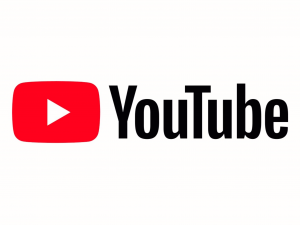YouTube rolls out conspiracy debunking fact-check feature in the UK
YouTube is bringing its fact-check information panels to the UK and Germany as part of an international crusade against misinformation. The geographical expansion follows the success of similar panels in the US, Brazil and India.
What does the fact-checking tool do?
-
Region-specific ’information panels’ alert users when specific search terms that are ’prone to misinformation’ are used.
-
Informed by verified third-party fact-checkers, the service informs users of possible controversy within search results directly through terms such as ’hoax alert’ and ’fake’.
-
Anyone falling down the rabbit hole of flat Earth theorising, anti-vaccination scaremongering or 5G radiation fears will be directed to authoritative sources such as Encyclopedia Britannica, the NHS and the World Health Organization.
-
Such panels will begin rolling out in UK search results over the coming days as YouTube fights to steward fast-moving news cycles, rumourmongering and unfounded claims.
How the fact-check information panels work
-
Fact-check articles will only appear where a relevant fact-check article exists from an approved publisher and where a specific claim has been entered by the viewer.
-
An example given is someone typing ”did a hurricane just hit London” would likely trigger a relevant reality check whereas someone hunting for a more generic term such as ”hurricane” would not.
-
Locally relevant organisations have been brought on board to oversee this process, including BBC Reality Check, Full Fact and Ferret Fact Service.
-
Each publisher is required to adhere to publicly available ClaimReview guidelines, as well as being either a verified signatory of the International Fact-Checking Network’s (IFCN) Code of Principles or are an authoritative publisher in their own right.
-
Each fact-check article will also be open to fact-checking of its own, with feedback functionality enabling viewers to share their opinion on the message.
Why does it matter?
-
Google has faced mounting pressure to act as fake news has propagated further and wider by actively demoting unverified sources in its ’top news’ section.
-
Attention is now focussed on YouTube and Facebook, which are facing demands to get their own houses in order by public authorities and advertisers.
-
Advertisers in particular have been forced to tread with increasing caution on YouTube following a spate of scandals in which brands found themselves alongside content spouting ’anti-vax’ claims and Covid conspiracy theories.
-
Such problems have become particularly acute during the present global health emergency, with studies suggesting as many as 62 million people have viewed ’misleading or inaccurate information’ on coronavirus.
-
Increasingly, brands are coming under direct pressure from consumers to act with a recent study indicating 71% of British consumers wish to see brands take the issue of misinformation more seriously.
-
This follows a clear pattern of dwindling public trust in both advertising and media amid an explosion of scams, conspiracy theories and fake news.
// Featured in this article

YouTube
Enjoy the videos and music you love, upload original content, and share it all with friends, family, and the world on YouTube.
*** This article has been archived for your research. The original version from The Drum can be found here ***


